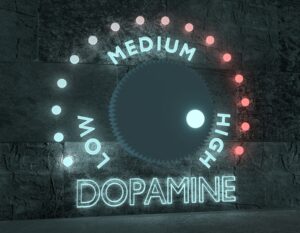Coffee is the third most consumed beverage around the world after water and tea.
Endemic to the southwestern highlands of Ethiopia, Coffea arabica (the Latin name of coffee) is grown in dozens of countries between the Tropic of Capricorn and the Tropic of Cancer.
Coffee is the fourth most valuable agricultural commodity on earth, according to United Nations Food and Agriculture Organization. There are around 12,5 million coffee farmers in the world and it is estimated that around 100 million people rely on coffee for a living. The most coffee is produced by these five powerhouses: Brazil, Vietnam, Indonesia, Columbia and Ethiopia.

Possibly the cradle of mankind, the ancient land of Abyssinia, now called Ethiopia, is the birthplace of coffee. We do not know exactly when or by whom coffee was discovered. One of the legends involves a goatherder named Kaldi who, to his astonishment, discovered that his goats chewed off some glossy green leaves and the berries of a tree he had never seen before and they were literally dancing and bleating excitedly. He decided to try it himself the next day. Soon, according to legend, Kaldi was frisking with his goats. He felt like he was never be tired or grouchy again. Kaldi told his father about the magical tree, the word spread and soon coffee became an integral part of Ethiopian culture. And the rest is history, as they say.

So, why does the world universally love coffee so much?
As most coffee lovers would tell you, drinking coffee is a complex and nuanced experience—there’s the rich aroma, the comforting warmth, and the loveliness of the ritual of sitting down with a fresh cup.
With the variety of ways, it can be served and the jolt of caffeine it provides us, it’s not hard to see why the world loves its coffee. In fact, we love the beverage so much that humans have conditioned themselves to associate the bitter taste of coffee with a bout of energy and positive reinforcement.

The health benefits of coffee
For decades the science was mixed about the health benefits of coffee. It was always back and forth. It does have benefits but it also does have negative effects on human’s health. Undecided.
Newer research suggests that it may actually have more health benefits then previously thought, tilting the balance in favor of “drinking coffee is good for your health”.
Based on this research, moderate coffee intake (2-3 cups a day) may offer some protection against:
- Parkinson’s disease
- Type 2 diabetes
- Liver disease, including liver cancer
- Heart attack and stroke
- Depression / mood disorders
Coffee still has potential risks, mostly due to its high caffeine content. For example, it can temporarily raise blood pressure. Women who are pregnant, trying to become pregnant or breastfeeding need to be cautious about caffeine. High intake of boiled, unfiltered coffee has been associated with mild increase in cholesterol levels (it is suggested to use a paper filter). It can definitely affect your sleep. Too much caffeine can also cause anxiety in people with panic or anxiety disorders.

What is its mechanism of action?
Caffeine binds on adenosine receptors, which normally make you feel sleepy, and reduces their depressive effects.
But it’s unlikely that caffeine is solely responsible for the health boosts the drink confers. Coffee is a complex, plant-based beverage, which contains not just caffeine, but also hundreds of bioactive compounds (antioxidants, especially polyphenols). That makes it difficult to differentiate the effect of the drink’s individual components. Studies have suggested that some of the same reductions in diabetes and heart disease risk are associated with decaffeinated coffee, which means it’s not just the caffeine.
There is a complex relationship between genes and caffeine metabolism, or how quickly the body processes caffeine. There is research that shows how certain gene variants influence this process. To make matters more complicated, this response can vary over different populations that may have evolved to tolerate more or less caffeine. We all know that lucky person that can have a cup of coffee just before bedtime and sleeps like a baby!
Is Coffee Addictive, and Does it Matter?
When you have a caffeine addiction, it means that your caffeine use negatively disrupts your life, yet you’re unable to stop consuming it. Or you consume it in amounts that are potentially dangerous to your health despite knowing that it may harm you mentally or physically.
Officially, caffeine addiction is not a formally recognized condition in the “Diagnostic and Statistical Manual of Mental Disorders (DSM-5),” a manual used by clinicians to classify and diagnose mental health concerns.
Caffeine affects the brain’s reward system, which triggers the release of a chemical called dopamine. Dopamine causes people to feel good, creating a reward cycle that motivates them to keep consuming it and experiencing that same level of reinforcement.

It also causes physiological dependence, which means that when you reduce or stop your caffeine intake, you will likely experience withdrawal symptoms like tiredness, headaches, and irritability. The most concerning is the ability to disturb your sleep if consumed within 6 hours of bedtime. When you are sleep deprived, it makes it harder to function efficiently during the day. Sleep is also when your body heals, making it essential for total health and immune function.
While the consequences that come with any habit-forming substance shouldn’t be discounted, experts say that people generally tend to successfully moderate caffeine use by drinking less coffee when they experience negative effects. Based on our genetics, we’re all kind of in tune with how much caffeine we can tolerate, I would say. Many of us are well aware of the effects of caffeine, and so we moderate our coffee consumption adequately.
And also (as I recommend to my patients when asked about coffee) don’t forget the rule of 3 for coffee: Black, Organic and Never on an empty stomach!
